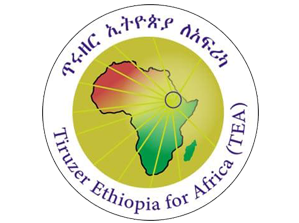One Health – Ethiopia
At One Health – Ethiopia (OHE), through partnerships within different disciplines, we are implementing the concept of One Health, in the approach of coordinated health management for humans, animals, and the environment in Ethiopia.
Mission of One Health – Ethiopia
The mission of OHE is the establishment of closer professional interactions, collaborations, and promotion of research activities across the veterinary, medical and environmental health professions in order to improve public health.
Objectives of One Health – Ethiopia
1. To establish & strengthen One Health Clubs in higher learning institutions.
2. To influence the incorporation of One Health in the national agenda for improving the health of animals, human and the environment.
3. To create national awareness within the broad scientific community, the general public and government institutions.
4. To promote research activities on zoonotic diseases.
5. To promote collaboration among the diverse One Health professions.
Why One Health in Ethiopia?
One Health is directed toward gaining the trust of populations whose livelihood depends on the health of their animals, creating partnerships, and preparing for wars against (re)emerging zoonotic diseases. Ethiopia is the leading African country in livestock population. Moreover, pastoralism is widely practiced and there is close contacts of livestock with humans, consumption of raw animal products coupled with poor sanitation is quite common. Consequently, zoonotic diseases such as rabies, anthrax, tuberculosis and brucellosis are common and pose risks to public health. Apart from these, other diseases which are mainly transmitted from person to person also circulate in animals or have an animal reservoir, and can cause serious health emergencies, such as the recent epidemic of Ebola virus. These risks increase with globalization, climate change and changes in human behavior, giving pathogens numerous opportunities to colonize new territories and evolve into new forms.
Quick Facts about Zoonotic Diseases
- At least 60% of human infectious disease agents are zoonotic -can be acquired from other animal species.
- At least 75% of emerging infectious diseases have been zoonotic (transmitted between humans and other animals) including Rabies, Anthrax, Brucellosis, Leptospirosis, and Tuberculosis.
- The concept of one health is not new but its current holistic and collaborative approach is supported by many human and animal organizations such as the American Medical Association and the American Veterinary Medical Association, CDC, International One Health Congress e.t.c.
Establishment of One Health Clubs in Two Public Universities
This was a One Health Awareness project through establishment of One Health Clubs in Assossa University in Benishangul Gumuz Regional State and Semera University in Afar Regional State. The project was implemented by TEA from December 2015 to April 2016 and funded by Civil Society Support Program (CSSP)/British Council. 340 students benefited as a result of this project implementation in the two universities. We want to demonstrate the effectiveness of one health clubs in dealing with health related problems of university youth so that it can be scaled up to all public and private universities, colleges and similar higher learning institutions in the country.Specifically, this intervention wants to realize the following objectives:
- Strengthening the two One Health Clubs, one in each selected universities, each with 30 active leadership members;
- Equip 60 leadership members of the One Health Clubs with necessary club leadership, negotiation, communication and dialogue skills;
- Ensure active engagement of the One Health Clubs with the universities’ community service departments;
- Providing refresher training to leaders and members of the Clubs
- Providing materials for discussion, dialogue and advocacy to the Clubs
- Conducting coffee ceremony to announce the goals and objectives of the clubs.
- Conducting question and answer programs among students. (the questions are concerned about addiction, sexual violence, mental illness, HIV infection and other health related problems) and providing award for winner students
- Arrange motivational seminars
Activities of the One Health Clubs
The One Health Clubs will be expected to do the following activities in the university campus and neighborhood community setups.- Conduct a number of awareness raising programs inside the university and around the host community using coffee ceremony and question and answering programs;
- Communicate with different department students and selection of students who are participants of questioning and answering program as well as drama and poem presenters in their program;
- Provide counseling services to victims of addiction, sexual violence, infection, etc;
- Arrange referral linkages for victims of addiction, sexual violence, HIV infection and other problems to get timely treatment by networking with different institutions such as Amanuel Mental Health Hospital, HIV and AIDS counseling clinics, psychotherapy clinics, etc;
- Arrange peer-support groups to assist victims of addiction, violence, infection, etc to cope up in their education and social life;
- Arrange motivational seminar by inviting successful personalities and motivational speakers from inside and outside the university to educate the university youth about healthy and responsible life;
- Arrange day-outs for mobilizing the university community for mass action such as tree planting, waste cleaning, beautification, etc.
- Link with other similar Clubs inside and outside the country and arrange joint learning and sharing sessions;
